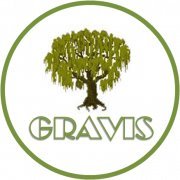Just like its name suggests, Educate Girls works to ensure that young girls across India, particularly from rural and educationally-backward areas, have access to primary education. Since it was founded in 2007, the organisation has established its presence in more than 21,000 villages in Rajasthan, Uttar Pradesh and Madhya Pradesh.
Its work is strongly aligned with the government’s vision under the Right to Education Act and the Samagra Shiksha scheme, and mobilises large numbers of community volunteers to leverage the government’s investment in schools. Educate Girls’ base of volunteers work to identify, enrol and retain out-of-school girls through door-to-door surveys and regular, face-to-face dialogue with parents. Volunteers also work to improve all children’s foundational skills in literacy and numeracy.
So far, Educate Girls has mobilised more than 18,000 community volunteers and enrolled over 1.5 million out-of-school girls in school. By 2025, it aims to improve access and quality of education for 15 million children in India.
The project supported by MFE:
This one-year project focuses on getting girls back into school and improving their learning in three specific blocks of MP’s Jhabua district: Rama, Thandla and Jhabua. The organisation has already identified 4,300 out-of-school girls in these three blocks; it aims to enrol 60% of them – 2,560 girls – into school by the end of the project period.
The second goal of the project is to measure the retention of girls who have already been enrolled in school the previous year. On this front, Educate Girls has committed to ensuring the retention of at least 85% of girls in school.
The final project goal is to measure learning outcomes of schoolchildren – both girls and boys – using their foundational literacy and numeracy skills as a yardstick of measurement. To this end, Educate Girls has conducted a baseline assessment of students’ skills in maths, Hindi and English, and aims to bring about an average grade gain of 20% in math and Hindi skills, along with a 15% grade gain in English.
The project also includes providing life skills training to 416 adolescent girls in Classes 6, 7 and 8 (13 girls each in 32 schools). This training is done through Bal Sabha activities where girls are taught communication skills, leadership, team culture, health, sanitation and more. The project aims to train these 416 girls well enough for them to then teach these skills to the rest of the girls in their schools. Overall, the project envisions positively impacting 19,360 beneficiaries in Jhabua’s most backward blocks.


